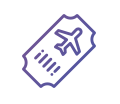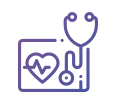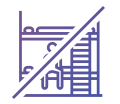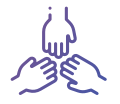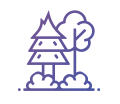Search
Protection officer
The staff member of the CGRS who questions you during the interview and who handles your case.
Forced return
If a foreign national does not comply with an order to leave the territory, he or she may be forcibly removed. In order to perform the repatriation, the foreign national may be transferred to a detention centre or residential unit.
Voluntary return
Applicants for international protection and persons without legal residence can return voluntarily to their country of origin at any time. Fedasil is the Agency which helps them: they receive a flight ticket and the necessary support during the trip.
Residence status
The residence status determines the conditions under which a person may reside in Belgium. It can be temporary or permanent.
All residence statuses are subject to rights and restrictions. Among other things, the status determines whether you can work here; whether you can travel to another country; whether you can bring family members.
People smuggler
Someone who illegally brings people across borders for a high fee. They usually provide transport, food, shelter, and (forged) documents. People smugglers demand a lot of money for this. Some people smugglers abandon their customers.
Registered letter
A letter where the sender receives a proof of sending from the post office. A letter is usually sent by registered mail if it is an important letter.
Domestic violence
Violence committed in the domestic or family circle. The violence does not necessarily happen at home.
Collection calendar
The collection calendar of the municipality shows when your waste will be collected. For example: on Monday: paper and cardboard, on Wednesday: PMD.
Fine
A fine is a sum of money that you need to pay if you have committed an offence. For example: a fine for speeding while driving.
Electronic foreign national card
If you are not a Belgian national and you have the right to reside in Belgium, you will receive an electronic identity card for foreign nationals.
People who want to return to their country can ask Fedasil for help.
A medical examination and medical certificates from a doctor may be useful for the asylum procedure.
In some cases, Belgium may revoke the refugee status granted. As a refugee, you can also end your refugee status yourself.
You have not been granted a right of residence, but due to a specific reason you cannot return to your country of origin. You can submit an application for humanitarian regularisation. Regularisation is an exceptional procedure.
If you do not stay in a reception centre during the examination of your asylum application, you will not receive any financial support. You do have the right to medical assistance.
Freedom means that you are entitled to your own ideas and opinions, to defend yourself, to choose your religion, to choose your partner.
In the summer it is hot in Belgium and people seek refreshment in the water. Only swim where there is a lifeguard present and do not go into the water if you cannot swim.
Welcome to Fedasil info, the information platform for asylum seekers in Belgium!
In Belgium, marriage is a free choice, you decide whether you want to marry and with whom. In our country, people of the same sex can also marry each other. Both partners must be at least 18 years old.


